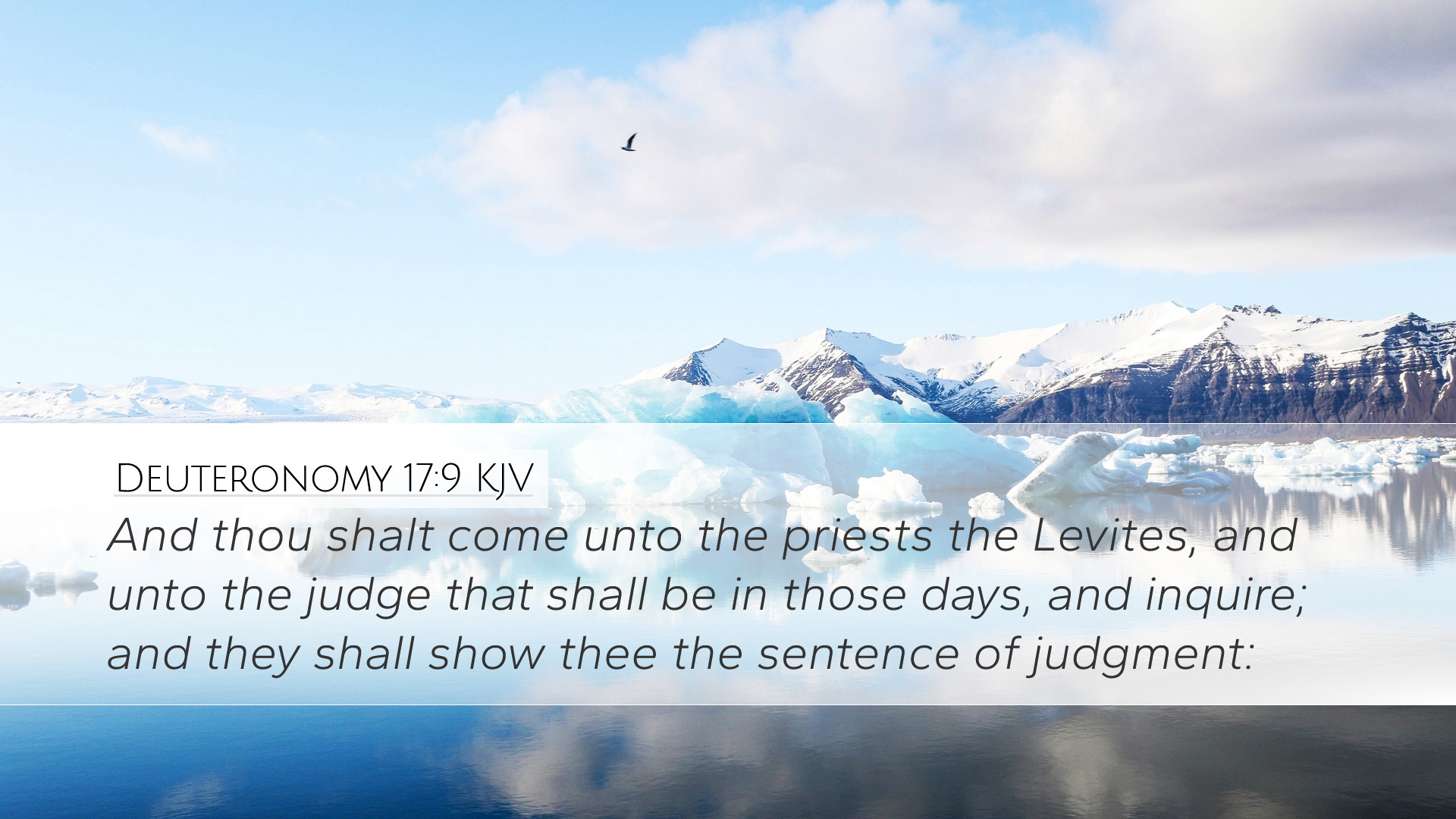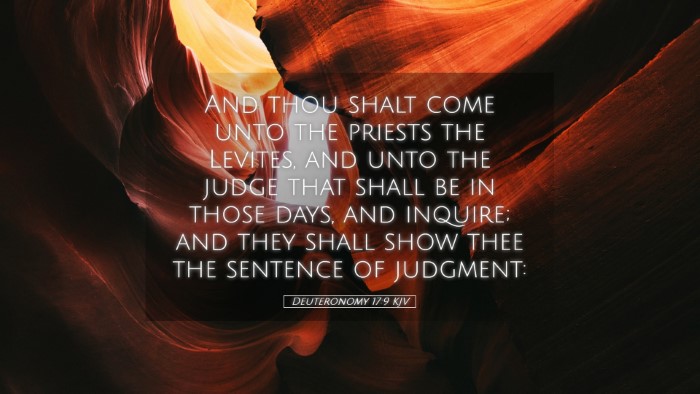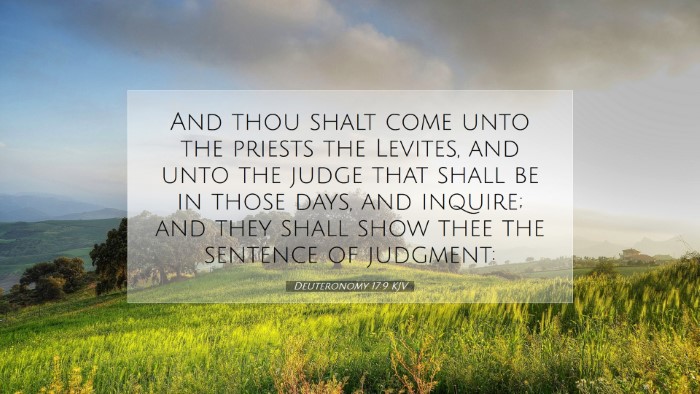Commentary on Deuteronomy 17:9
Deuteronomy 17:9 states: "And thou shalt come unto the priests the Levites, and unto the judge that shall be in those days, and enquire; and they shall show thee the sentence of judgment." This verse presents pivotal insights into the governance of Israel, emphasizing the role of priests and judges in administering justice.
Contextual Background
The book of Deuteronomy serves as a farewell address from Moses to the Israelites, reiterating the Law and preparing them to enter the Promised Land. In this particular chapter, divinely ordained institutions for maintaining order, justice, and worship are outlined. The context reveals the need for a hierarchical structure to guide the people in their covenant relationship with God.
Insights from Matthew Henry
Matthew Henry, in his comprehensive commentary, highlights several important aspects concerning this verse:
- The Role of the Priests: Henry emphasizes that the priests are not merely religious figures; they are also custodians of the law and justice. Their duty goes beyond sacrifices; they are to instruct and guide the people in all matters of faith and conduct.
- The Judge's Authority: Henry notes the significance of human judgment tempered by divine law. The judge serves as an intermediary who interprets God’s statutes for the populace, underscoring the need for alignment with God’s will.
- Assessing Justice: He reflects on the necessity of seeking counsel from those in authority. The call to "enquire" suggests a principle of humility before God’s appointed leaders, advocating for a community-oriented approach to justice and decision-making.
Insights from Albert Barnes
Albert Barnes, offering a more succinct interpretation, affirms the following points:
- Consultation with God’s Representatives: Barnes underscores that this directive to consult the priests and judges illustrates God’s desire for His people to seek wisdom in governance from those set apart for this purpose.
- Judicial Process: He elaborates on the validity of communal wisdom, arguing that the process of inquiry reflects a system that builds a foundation for justice rather than leaving it to individual interpretation.
- Establishing Order: Barnes posits that Moses’s command serves to establish a structured society wherein God’s laws prevail, advocating for accountability among judges and priests entrusted with interpreting the law.
Insights from Adam Clarke
Adam Clarke provides a more expansive view, incorporating scholarly research on traditions and practices:
- Historical Context: Clarke notes that in ancient Israel, consulting priests and judges was not merely a matter of discipline but of tradition rooted in deep respect for spiritual authority.
- Spiritual and Ethical Dimensions: He reflects on how this verse interlinks spiritual and ethical dimensions, suggesting that inquiry leads to a deeper relationship with God and a clearer understanding of His justice.
- Responsibility of Leadership: Clarke also discusses the accountability of leaders in maintaining integrity in their judgment, ensuring that decisions reflect God’s will rather than personal biases.
Theological Implications
The theological implications of Deuteronomy 17:9 are profound:
- The Sovereignty of God: The passage illustrates God's sovereign authority over Israel's moral and judicial decisions, highlighting that true justice stems from Him.
- Community and Authority: The necessity for community leaders indicates a divine order that promotes unity and parameters within which justice operates, reinforcing the importance of seeking God’s wisdom collectively.
- The Law and Its Interpretation: The integration of priests and judges underscores the necessity of understanding the law through the lens of divine revelation and practical application in daily life.
Practical Applications
For pastors, students, theologians, and Bible scholars, this verse carries several practical applications:
- Consultation and Accountability: Just as the people were encouraged to consult the priests and judges, modern leaders should seek counsel from wise spiritual mentors and community leaders, fostering a culture of accountability.
- The Importance of Teaching: There lies an essential call for today’s leaders to be educators in moral and ethical standards, equipping congregations to discern God’s truth.
- Reflection on Justice: Scholars are invited to reflect on the broader implications of justice in society today, considering how biblical principles can influence contemporary legal and ethical frameworks.
Conclusion
Deuteronomy 17:9 serves as a vital reminder of the roles of authority, community, and divine guidance in the journey of faith and governance. By engaging with the insights of Henry, Barnes, and Clarke, as well as reflecting on the broader theological and practical implications, individuals and communities can cultivate a deeper understanding of justice that aligns with God’s will.


